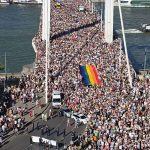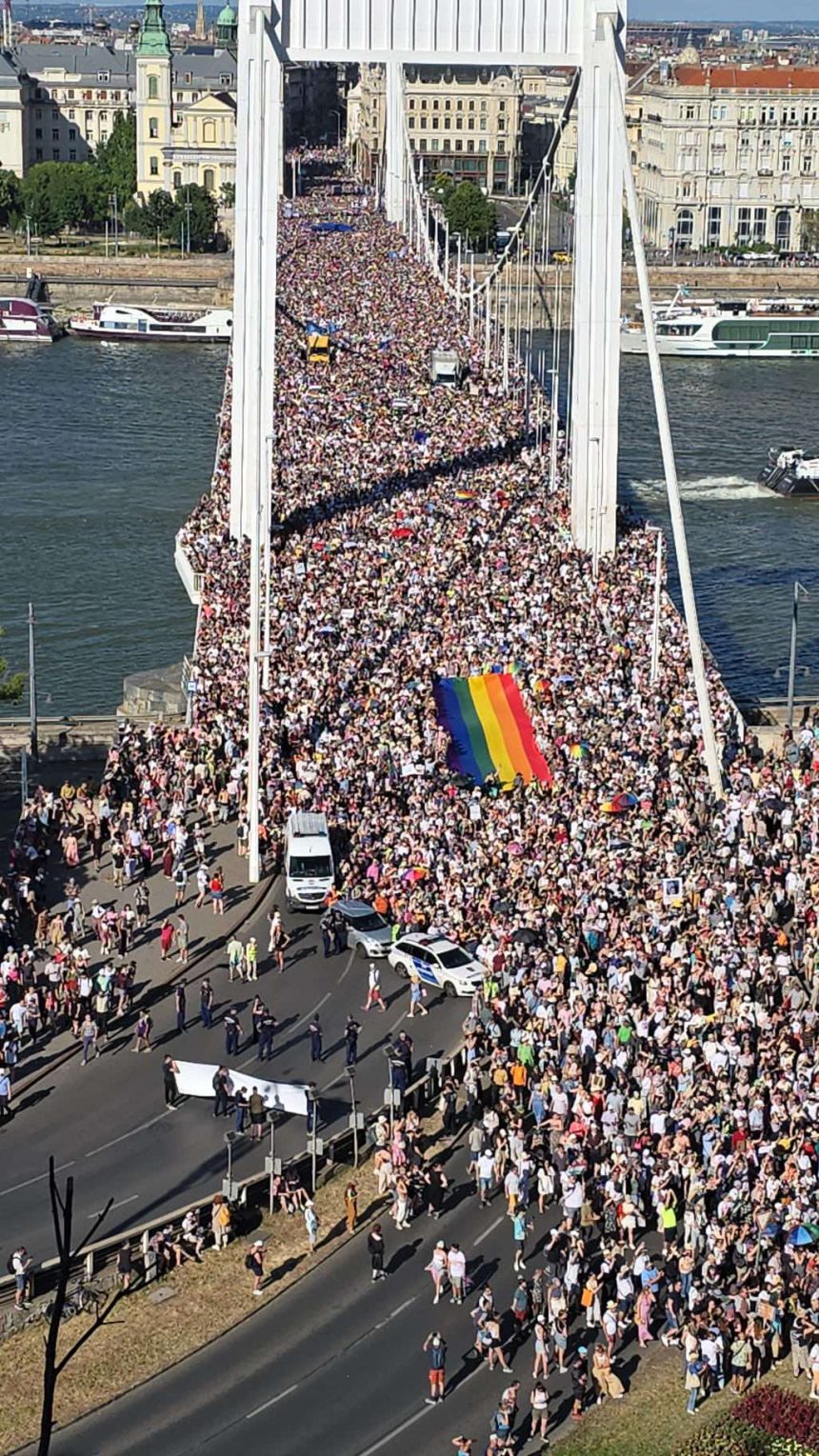Despite an official ban by Viktor Orbán’s government, tens of thousands of people participated in this year’s Budapest Pride , sending a strong message of LGBTQ+ rights, freedom and equality. This mass participation turned into an act of resistance against the repressive policies that have limited human rights in Hungary in recent years.
With colors, music, flags and emotion, people of all ages – including many young people participating for the first time – flooded the streets of Budapest in a peaceful and festive march. The dominant slogan was: “Freedom and love cannot be banned.”
This year’s event took place under the shadow of a new legislative ban citing “child protection,” using fear-mongering rhetoric to limit public expression of LGBTQI+ identity. Despite the government’s official warning of “legal consequences” for participants and organizers, the march proceeded peacefully, with the active support of Budapest Mayor Gergely Karacsony, who recognized it as a municipal event.
The Hungarian government’s stance has sparked strong reactions at the European level. At least 70 MEPs participated in the march, wanting to demonstrate their commitment to fundamental human rights and oppose authoritarianism. At the same time, 33 countries have publicly expressed their support for the Pride organizers.
This year’s march was more than a celebration. It was an act of courage , unity , and solidarity . It was a response to hate speech, a call for inclusion and equal rights for all, regardless of sexual orientation or gender identity.
As 18-year-old student Akos Horvath said: “The point is not only to represent homosexuals but to defend the rights of the entire Hungarian people.”
Europe is watching, and history is being written through the voices of those who refuse to be silent. In Budapest, Pride 2025 was not just a march – it was an act of hope. For a world where love is not persecuted , and diversity is not silenced , but celebrated and embraced.











